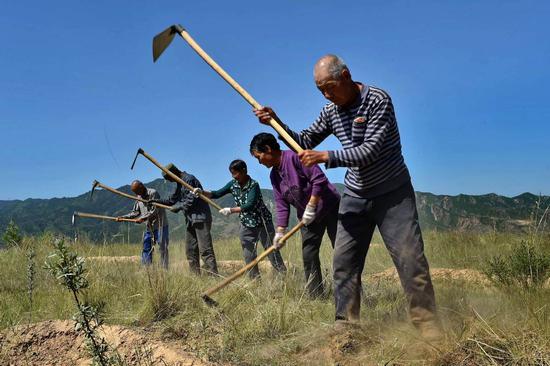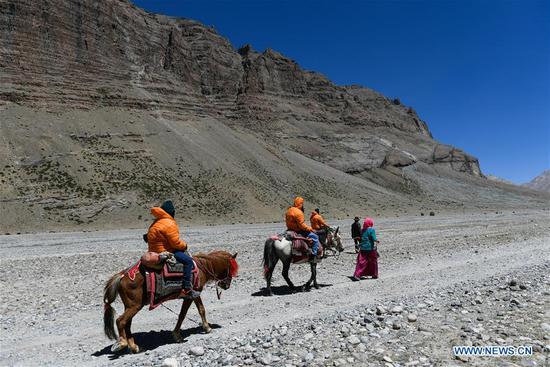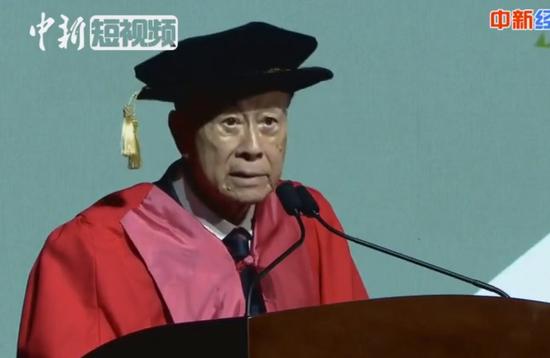
Cooperative members in Lanxian county, Shanxi province, prepare the ground before planting trees as part of a forestry program. (CAO YANG/XINHUA)
A forestry program has helped raise living standards on the Loess Plateau.
At one time, farmers on the Loess Plateau in Shanxi province could only plant crops they knew were sturdy enough to resist the effects of frequent droughts and thrive in the area's thin soil.
However, the development of an "ecological forest" program has resulted in a wider range of choices, which means the locals are able to cultivate their own orchards while protecting the fragile ecology at the same time.
Shanxi is one of several areas where the arid loess soil has been turned a lush green.
The area is now home to more than 3,000 cooperatives, loose affiliations that employ about 66,000 impoverished farmers who share resources but are free to decide which crops to grow.
Having lived on the plateau for more than 40 years, Zhong Sheng used to work the dry land endlessly, but his life has changed markedly since he became a forest ranger in the 1990s.
The 60-year-old cultivates and preserves trees and saplings, which form a barrier against the wind and prevent the soil from being blown away, as well as trapping moisture. He has not only witnessed the transformation of an infertile area into an oasis of greenery, but has also seen his income and personal circumstances improve.
Zhong is one of many beneficiaries of an afforestation program in Caijiachuan, Jixian county, in the southwest of the province.
In addition to the 1,000 yuan ($150) a month he earns as a ranger, he makes 30,000 yuan a year from the 0.27 hectares of apple trees he planted in 2015.
Before becoming a ranger almost 30 years ago, Zhong earned about 8,000 yuan a year. The income was barely enough to feed him, his wife, three sons and a daughter, and the family lived in a cottage made from compacted earth. He never imagined that he would move to a brick-and-mortar home at the age of 50.
By the end of last year, 2,257 cooperatives had been formed in Shanxi, generating 470 million yuan and resulting in each farmer's income rising by 8,700 yuan a year.
The number of cooperatives has continued to rise this year.
Afforestation programs are one of the ways the central government plans to lift rural residents out of poverty.
In January, it pledged to further bolster the ecological industry by establishing 12,000 cooperatives nationwide by 2020.
They will employ 100,000 people to develop forests and woodlands, and, overall, the project will benefit about 15 million impoverished people.


















































